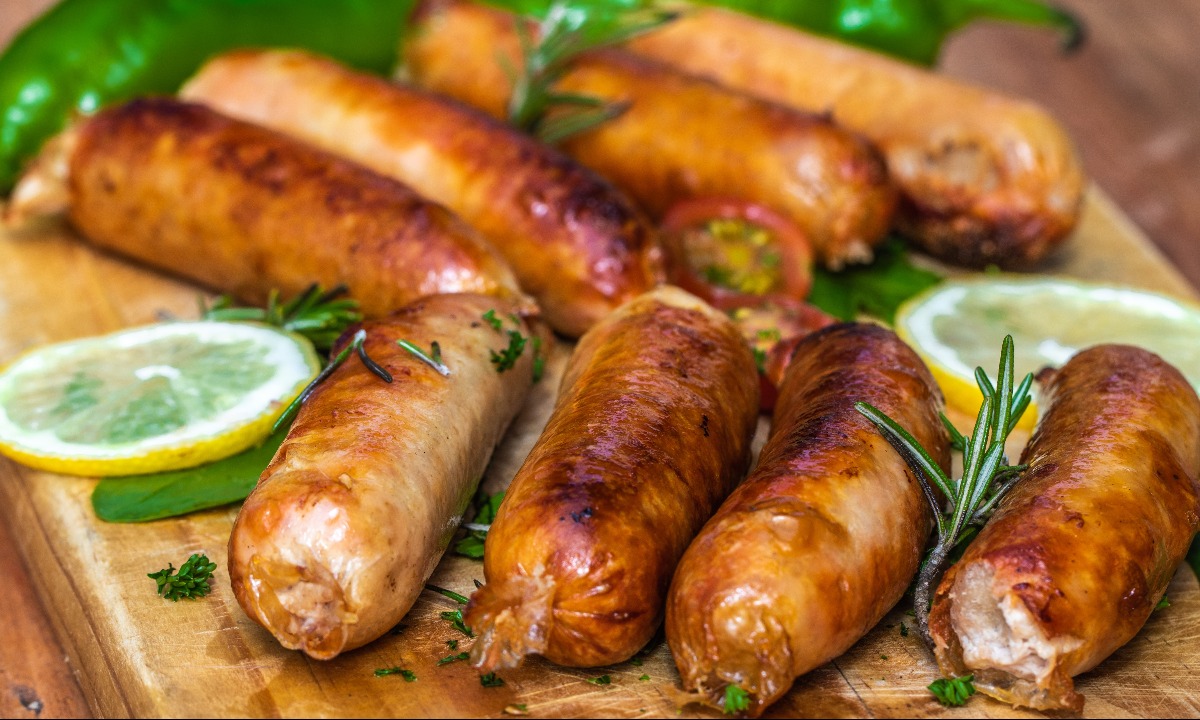Ivy Farm on hunt for £40m minimum fundraise as aims to become first cultured meat firm to reach UK market
By John Reynolds on Tuesday 27 July 2021

By John Reynolds on Tuesday 27 July 2021

Ivy Farm is talking to regulators in the UK, Singapore and the US as it looks to get its cultured sausages, burgers and meatballs approved. It is going to the market later this year with the aim of raising at least £40m.
A British cultured meat startup is hoping to raise a minimum of £40m, as it looks to become the first firm to get its cell-based meat products approved to the UK market.
Ivy Farm Technologies, spun out of Oxford University, wants to become the first approved commercial producer of cultured meat in the UK and is aiming to do so in 2023.
Ivy Farm has just undertaken a £16m funding round to build a pilot R & D facility near to Oxford University, which it hopes to move into in the next three months, which will hold up to 75 staff. Ivy Farm currently has 29 staff, with the aim of growing to 50 by end of the year.
Rich Dillon, CEO, said the company will look to go to the markets later this year for further funding, as its builds on its expansion plans.
He said: "We will look to raise a considerable amount of money, £40m plus. And that will be based on a number of tech milestones and cost milestones being achieved. I think the existing investors will follow on. But I think we're looking for, because it's quite a big round, we'll be looking for new investors coming in."
As part of its investment, it is also opening up a plant at its R&D facility, called an Urban Farm which Dillon likens to a “craft brewery” where customers can taste the cell-based products, which includes sausages, burgers and meatballs. Its focus in the short-term is on pork-based meats.
“That pilot plant will have the capacity to not only serve the consumers there, but also put it in some supermarkets around and some on-premise venues around. And that is planned for 2023,” adds Dillon.
In a press release, Ivy Farm states it “has ambitions to put Britain on the map in the emerging global industry by producing products made from meat that has been made without GM additives, antibiotics or the need to slaughter animals (beginning with a guilt-free sausage) for supermarkets and the restaurant trade from 2023.”
It is now in discussion with regulators in the UK, Singapore, which approved the first cultured meat chicken nugget products last year, and the US.
“It is on their agenda,” Dillon says of all three regulators.
Dillon is hopeful that the FSA will prove “more agile” in its approach, in light of the UK’s exit from the EU.
“Our conversation with the FSA has been around: how quickly could they move? Because they are now free from Europe with Brexit. EFSA (European Food Safety Authority) was quite a bureaucratic process,” said Dillon.
“It was like an 18-month process from filing a novel food application to it even getting any feedback. The UK now have the ability to potentially become more agile and sign off parts of the application a lot quicker in iterative steps.
“We are a British company, we would love to open our Urban Farm and get first products to consumers here. But it does need to go hand in hand with the regulator’s time frame as well."
Ivy Farm’s non-GMO production process uses technology developed at Oxford University, in the same building that developed the Covid-19 vaccine.
It plans to make cultured sausages for supermarkets and restaurants by 2023, which will be followed by meatballs and burgers. ‘By 2025, we believe we can go real mass,” says Dillon.
“We will lead with our Urban Farm and sell outside to other restaurants and also to some supermarket outlets.
"I think it is important that consumers start to see it as a mainstream and not a niche thing.”
The price points will be around a 25 per cent premium on conventional meat products, says Dillon.
Dillon said it is talking with a couple of supermarkets about commercial tie-ups and points out that all supermarkets have a “green agenda” and “protein strategy”.
Its ambition is to make up to 12,000 tonnes of cultured pork a year by 2025.
Ivy Farm takes a small number of cells from an animal which are placed in a bioreactor, which are then replicated through exposure to vitamins and nutrients.
Asked about its target market, Dillon says that "there is a growing chunk of UK consumers, about 13m, which are reluctantly reducing meat consumption” because of ethical, environmental and other concerns. “That is our target market," he says.
2 August 2021
Paul Cuatrecasas
13 September 2021
Paul Cuatrecasas
30 June 2021
Paul Cuatrecasas
9 September 2021
David Stevenson